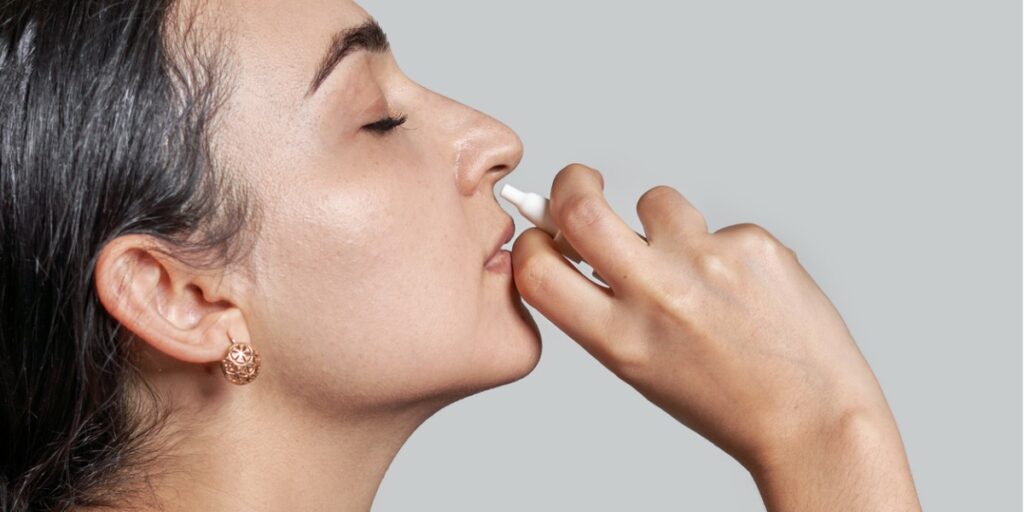OCD is a type of anxiety disorder, which is the most common type of mental health disorder in the United States and around the world. Millions of people experience the disruptive, intrusive symptoms of OCD every day.
We have a message for anyone who has OCD:
The expert clinicians at CCI can provide you with the personalized treatment you need so you can live the life you deserve.
Many people misunderstand anxiety disorders and think it’s possible to manage the symptoms of the disorder by willpower alone. They’re wrong: the symptoms of OCD can’t be willed or wished away. However, with the right evidence-based care, you can learn to manage the symptoms of OCD and reclaim your life.
Our experienced clinical and medical staff will design a custom blend of medical, psychiatric, and integrative therapies. We use an integrated, holistic treatment model to support the whole person, rather than just the symptoms of OCD. You’re more than your symptoms, and more than a clinical diagnosis: we look past the symptoms and diagnosis to see the real you. If you choose treatment at CCI, we work with you to manage your obsessions and compulsions and give you the practical tools you need to reclaim your life.
Obsessive-Compulsive Disorder and Addiction
It’s common for an individual diagnosed OCD to meet clinical for an alcohol and/or substance use disorder (AUD/SUD) in addition to OCD. When an individual has a mental health disorder such as OCD and an alcohol and/or substance use disorder at the same time, they receive a dual diagnosis and have what mental health providers call co-occurring disorders.
Data from the National Institute of Mental Health (NIMH) and the Journal of Substance Use shows the following prevalence rates of OCD in the U.S.:
OCD: Adults in the U.S.
- OCD diagnosis: 1.2%
- 1.8% of females
- 0.5% of males
- Among adults with OCD:
- 50.6% had serious impairment.
- 34.8% had moderate impairment
- 14.6% had mild impairment
- AUD/SUD Among Adults with OCD:
- Around 25% report any SUD or AUD
- AUD is the most common substance of misuse among people with OCD
One reason people diagnosed with OCD develop alcohol and/or substance use disorders is the practice of self-medication. People with OCD may attempt to manage the negative emotions associated with their obsessions and compulsions with alcohol or drugs. While self-medication may offer temporary symptoms relief, it’s not a practical long-term strategy: in the end, it causes more problems than it solves.
That’s what makes treatment for OCD important. Anxiety disorders and addiction disorders that reach the threshold for clinical diagnosis rarely resolve on their own. Both are chronic mental health disorders, and both respond well to evidence-based treatment delivered by experienced professionals who follow a holistic, integrated treatment model.
How We Can Help with Your OCD Treatment
Crownview Co-Occurring Institute offers the latest, evidence-based treatment for OCD and co-occurring alcohol and/or substance use disorders. We understand addressing OCD and addiction at the same time is essential. When patients receive treatment for OCD and addiction simultaneously, outcomes improve significantly.
Our clinical team is experienced in assessing, diagnosing, and treating co-occurring OCD and alcohol/substance use disorders. Every patient at CCI participates in a comprehensive mental health evaluation upon intake. Once we complete our intake evaluation and arrive at a diagnosis – or confirm a previous diagnosis – we work with patients to manage obsessions and compulsions and uncover the root of their addiction. We address OCD and addiction at the same time, because evidence shows that’s what works best.
The Benefits of Treatment for OCD
- Patients learn about the situations and people that might exacerbate their obsessions and compulsions, and/or influence their use of alcohol or substances
- Patients work closely with their counselors to identify the underlying cause of their OCD and substance use
- Patients learn practical skills to manage their symptoms
- Doctors monitor medication and make the appropriate adjustments while keeping a close eye on patient progress
- Staff members can offer consistent support when it’s needed most
Learn More Today
If you or someone in your family experiences the acute symptoms of OCD or addiction, Crownview Co-Occurring Institute may have a program that meets your needs. Contact us today to learn how we can help.



 Kimberly Gilkey, RADT-1
Kimberly Gilkey, RADT-1 Timothy Wieland
Timothy Wieland David Abram
David Abram Mark Melden, DO/DABPN
Mark Melden, DO/DABPN Jeffrey Klein
Jeffrey Klein Nathan Kuemmerle, MD
Nathan Kuemmerle, MD Laura Hopper, Ph.D.
Laura Hopper, Ph.D. Rebecca McKnight, PsyD
Rebecca McKnight, PsyD Milena Dun, PhD
Milena Dun, PhD Brieana Turner, MA, LMFT
Brieana Turner, MA, LMFT Brittany Perkins, MA, LMFT
Brittany Perkins, MA, LMFT Joanne Talbot-Miller, M.A., LMFT
Joanne Talbot-Miller, M.A., LMFT Alexis Weintraub, PsyD
Alexis Weintraub, PsyD Kathleen McCarrick, MSW, LSW
Kathleen McCarrick, MSW, LSW Christina Lam, N.P.
Christina Lam, N.P. John P. Flores, SUDCC-IV-CS, CADC II
John P. Flores, SUDCC-IV-CS, CADC II David Dalton, Facility Operations Director
David Dalton, Facility Operations Director Amy Thompson
Amy Thompson Kelly Schwarzer
Kelly Schwarzer Jovanna Wiggins
Jovanna Wiggins Alexandria Avalos, MSW, ACSW
Alexandria Avalos, MSW, ACSW Michelle Ertel
Michelle Ertel Emily Skillings
Emily Skillings Amanda Irrgang, Registered Dietitian Nutritionist (RDN)
Amanda Irrgang, Registered Dietitian Nutritionist (RDN) Gianna Melendez
Gianna Melendez Jodie Dahl, CpHT
Jodie Dahl, CpHT Jordan Granata, PsyD
Jordan Granata, PsyD